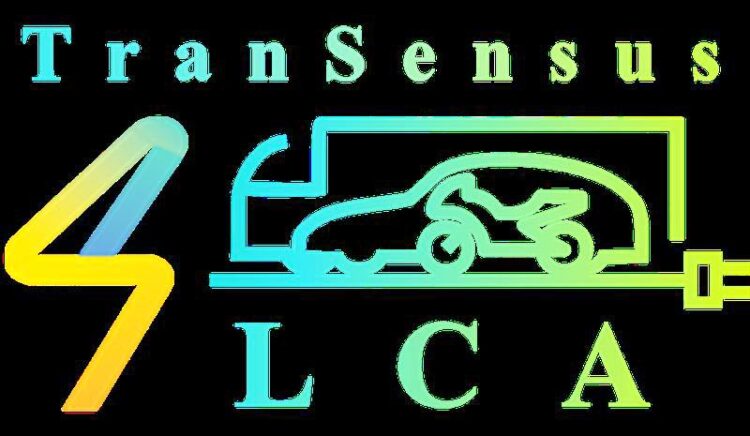Harmonize a transport-specific life cycle assessment (LCA) “TranSensus LCA”

TranSensus LCA kicked-off in Brussels will pave the way for LCA-based product and business development within the road transport market. Foto: Fraunhofer/ TranSensus
Fraunhofer-Institute for Structural Durability and System Reliability LBF and the Fraunhofer-Institute for Surface Engineering and Thin Films IST jointly coordinates a Support and Coordinated Action aiming at defining and harmonising a commonly accepted and applied single Life Cycle Assessment (LCA) approach for zero-emission vehicles ZEV.
44 key stakeholders along the full value chain of zero-emission vehicles covering, among others, vehicle and battery manufactures, the supply industry, energy providers and recyclers are working together. The European Commission supports the unique initiative under the Horizon Europe Framework Programme. Kick-off meeting was held on February 1 in Brussels.
Considering upcoming technologies leveraging emission reduction strategies, circular economy targets as well as potential social issues becomes increasingly challenging over the full life-cycle of vehicles (design and development, production, use-phase and End-of-Life) and over the supply chain. Within this context, a reliable, transparent, standardized assessment of the environmental footprint of different solutions and technologies is essential to support the transformation of our transport system towards climate-neutrality. Although all stakeholders already recognize the importance of life cycle assessment (LCA), the transport sector is still struggling to adopt LCA approaches. Standardized and comparable results are still lacking due to, among others, limitations in accessing and managing real-life data or applying non-harmonized, inconsistent modeling choices, tools and system boundaries.
Europe, the first digitally enabled circular, climate-neutral and sustainable economy.
The Horizon Europe funded project TranSensus LCA therefore aims to develop a baseline for a European-wide harmonized, commonly accepted and applied single life cycle assessment (LCA) approach for zero-emission vehicles. Such a European single LCA approach is seen as a key element in achieving the Green Deal targets, making Europe the first digitally enabled circular, climate-neutral and sustainable economy. Bringing together relevant stakeholders from industry and research, an evidence- and real-life data-based LCA approach will be conceptualized and harmonized embracing environmental, economic and social aspects. By consensus, TranSensus LCA will enable industry, mobility providers and planners to provide sustainable products and to optimize mobility solutions as needed to combat climate change.
Details of the project
In detail TranSensus LCA aims for
• conceptualizing and demonstrating a single, European-wide real-data LCA approach for zero-emission road transport
• harmonizing of methodologies, tools and datasets
• elaborating an ontology and framework for a European-wide LCI database
• conceptualizing the LCI data management and update along the life cycle and along the supply chain
• taking into account upcoming technologies and demands
As such, it will pave the way for LCA-based product and business development within the road transport market.
Project consortium composed of industrial partners and scientific researchers
The TranSensus LCA consortium is composed of highly committed 11 industrial partners (BMW, EDF, Northvolt, Renault, Ricardo, Scania, Sphera, ST Microelectronics, Umicore, Valeo and Volkswagen) and 9 partners from research (Fraunhofer, BRGM, CEA, Uni Gent, Uni Leiden, RWTH Aachen, IVL, TU Braunschweig, Uni Bordeaux) covering the battery and vehicle value chain as well as providing the required expertise and know-how to elaborate the framework for a single European-wide LCA approach. The consortium is complemented by 24 associated partners ensuring an excellent representation of the road transport sector as well as strengthening the coverage of the relevant value chains and life cycle stages.
Wissenschaftliche Ansprechpartner:
Thilo Bein, thilo.bein@lbf.fraunhofer.de
Felipe Cerdas, felipe.cerdas@ist.fraunhofer.de
Media Contact
All latest news from the category: Ecology, The Environment and Conservation
This complex theme deals primarily with interactions between organisms and the environmental factors that impact them, but to a greater extent between individual inanimate environmental factors.
innovations-report offers informative reports and articles on topics such as climate protection, landscape conservation, ecological systems, wildlife and nature parks and ecosystem efficiency and balance.
Newest articles

NASA: Mystery of life’s handedness deepens
The mystery of why life uses molecules with specific orientations has deepened with a NASA-funded discovery that RNA — a key molecule thought to have potentially held the instructions for…

What are the effects of historic lithium mining on water quality?
Study reveals low levels of common contaminants but high levels of other elements in waters associated with an abandoned lithium mine. Lithium ore and mining waste from a historic lithium…

Quantum-inspired design boosts efficiency of heat-to-electricity conversion
Rice engineers take unconventional route to improving thermophotovoltaic systems. Researchers at Rice University have found a new way to improve a key element of thermophotovoltaic (TPV) systems, which convert heat…



